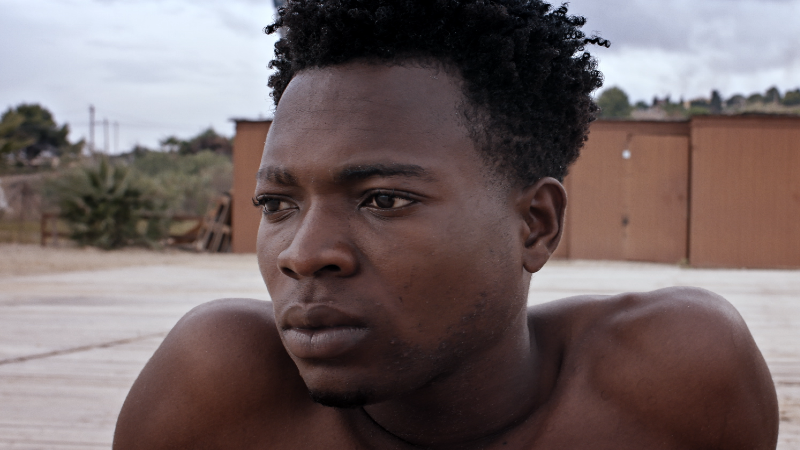Scriptwriting instructors love the cliché: “Show, but don’t tell.” They say it’s better to convey information visually as opposed to leading the viewer by the hand. Il Buco takes this to the nth degree, creating a film which is all glorious show, while telling us very little. Audiences left my screening frustrated, debating what it’s all about. My simple answer: does it actually matter when when what’s on screen just looks so awesome?
I learned a new word from this film: speleology. Simply put, it refers to the art of descending caves and figuring out their depth. Clambering through tiny cracks and wading through stagnant pools with only a searchlight for company, The Hole is freely inspired by a true story of speleologists who reached the bottom of the third deepest cave in the world in 1961, located in southern Italy.
For anyone who has been to southern Italy, it’s a place where time seems to move just that little slower. Director Michelangelo Frammartino captures the beauty of the area in great depth before taking us into the cave: rugged roofs that cats scamper across; people huddled together watching the only television in the village; trains appearing occasionally in the mist; vast mountains and vaster valleys; luscious greenery and a fine sense of mystery. It seems like the natural place for a massive cave.
Eschewing almost any dialogue whatsoever in favour of a documentary-like approach, featuring no music, and actually recreating real cave-diving sequences (probably with a higher level of health and safety than in the 60s), this is a film that demands a cinematic viewing. Particularly impressive is the immersive sound design — water perennially dripping and huge echoing sounds — and the use of light, men often seeming to descend into almost complete darkness. It looks absolutely terrifying. Like fighting in the army or going into space; it’s definitely the kind of job I’m glad someone else is doing. I’ll stick to writing film reviews in the sunshine.
Meanwhile, an old man sits on the side of the hill. He makes strange sounds to call his flock; sheep, cows, horses; all freely grazing. As the men descend the cave, his health deteriorates. He’s a symbol of the old-world, filled with an acceptance of mystery, the likes of which the others want to eliminate. It’s up to you whether or not this is just the mere passing of time, or a critique of man’s need for exploration.
And if there is any direct commentary, it comes from a short documentary we see on TV. Two men are climbing the highest building in Milan on a lift, commenting (in the only sequence that was subtitled) on all the people at their office jobs. They quote a window cleaner, who is enjoying the voyeurism so much, he forgets that he’s working at all (perhaps he’s Daniel Day-Lewis from The Unbearable Lightness of Being! (Philip Kaufman, 1988)). Perhaps the descending, silent men are the same; simply loving the joy of discovery, even if the bottom of the cave is just yet another dirty pool of water. If we don’t know why or what it’s all for, does it actually matter? This is a film that expands our sense of wonder, even if final meaning is elusively out of our grasp.
The Hole plays in the Supernova section of the Transylvania International Film Festival, running from 17th-26th June.









